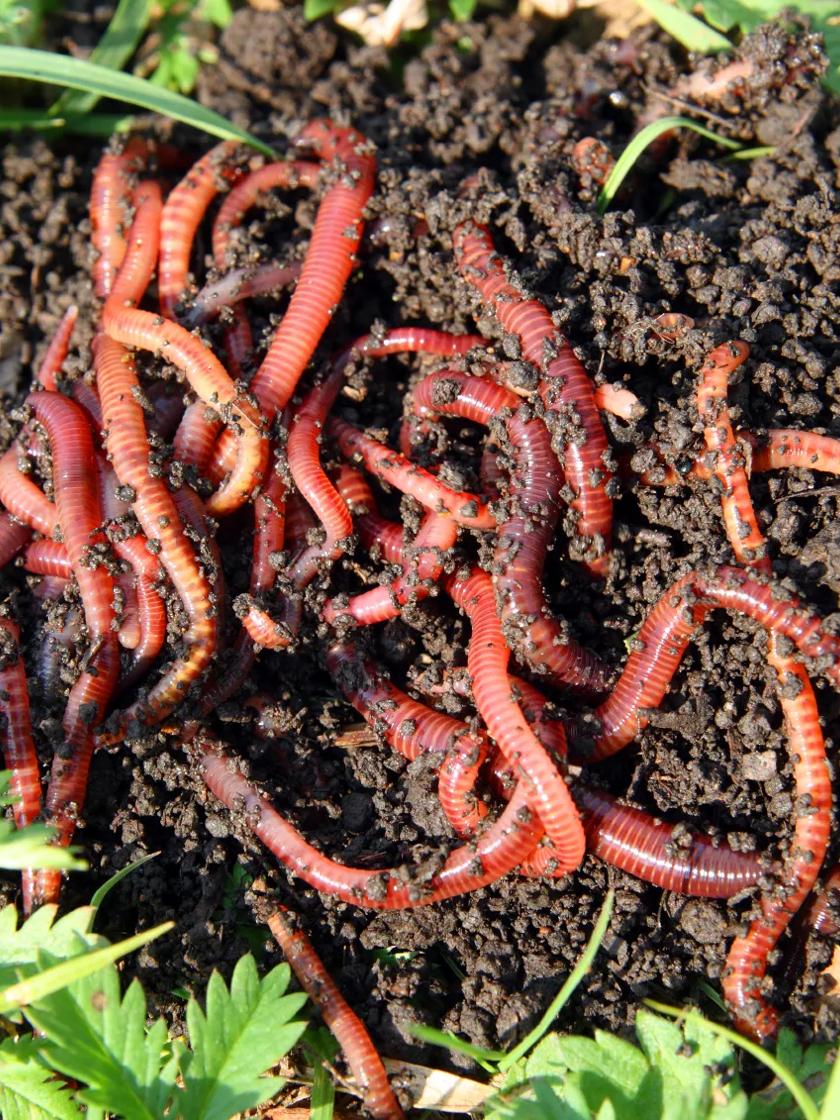Keep Your Lawn Green and Healthy with Expert Advice from Lake Hickory Bait
Keep Your Lawn Green and Healthy with Expert Advice from Lake Hickory Bait
Blog Article
The Amazing World of Red Wigglers: Boost Your Dirt Fertility Today
These small yet efficient microorganisms transform organic waste right into valuable worm castings, considerably improving dirt health and wellness and advertising sustainable practices. As we check out the benefits of vermicomposting and the sensible steps to produce a reliable worm bin, the possible impact of these worms on your gardening success ends up being increasingly obvious.
Understanding Red Wigglers
Red wigglers, clinically recognized as Eisenia fetida, are a species of earthworm that play an essential function in boosting soil fertility. These worms prosper in organic-rich settings, such as compost heap and decaying plant material, where they take in natural waste and eliminate nutrient-dense castings. Their distinct composition, including a fractional body and a clitellum, allows them to recreate quickly and successfully procedure huge quantities of natural matter.

The eco-friendly value of red wigglers prolongs beyond plain waste processing; they add to the dirt food web, promoting a varied neighborhood of microbes that better enhance soil wellness. Recognizing the biology and actions of red wigglers is essential for using their complete possibility in lasting agriculture and gardening methods.
Advantages of Vermicomposting
(Red Wiggler Express)Utilizing the power of red wigglers via vermicomposting offers numerous benefits that dramatically improve dirt health and fertility. One of the key advantages is the manufacturing of nutrient-rich worm spreadings, which are an outstanding all-natural plant food. Red Wiggler Express. These castings consist of important nutrients like nitrogen, phosphorus, and potassium, advertising durable plant growth and enhancing plant yields
The presence of worm castings improves soil texture, allowing for far better water retention and drainage. Red wigglers help break down organic matter, accelerating decomposition and recycling nutrients back into the soil.
Vermicomposting also promotes microbial activity, which is important for a healthy dirt ecosystem. Beneficial microorganisms thrive in the visibility of worm castings, aiding in the breakdown of organic products and boosting vitamins and mineral schedule to plants.
Last but not least, vermicomposting works as a reliable waste monitoring option, minimizing garbage dump waste by recycling kitchen scraps and other natural products. This not only contributes to ecological sustainability but likewise advertises a circular economic climate within gardening and agriculture.
How to Set Up a Worm Container
Setting up a worm bin is an uncomplicated procedure that can dramatically improve your composting initiatives. Begin by selecting a proper container, which can vary from a readily readily available worm container to an easy plastic or wood box (Red Wiggler Express). Ensure the container has appropriate ventilation; small holes in the cover and sides will promote air flow
Next, produce a bed linen layer to supply a comfortable setting for the red wigglers. This can be made from shredded newspaper, cardboard, or coconut coir, dampened to a damp, sponge-like uniformity. Fill the container to about one-third complete with this bed linen product.
Once the bed linens Lake Hickory Bait is prepared, it's time to present the worms. Red wigglers prosper in organic waste, so location them delicately onto the bed linen. Cover the worms with a light layer of added bedding to help them acclimate.
Feeding Your Red Wigglers
Supplying the right food for your red wigglers is crucial for their health and the effectiveness of your composting system. Red wigglers thrive on a varied diet plan, primarily consisting of natural materials such as fruit and vegetable scraps, coffee premises, and shredded paper. These products not just give necessary nutrients but likewise add to the microbial task in the worm bin, which is crucial for the worms' digestion.
It is very important to avoid specific foods, such as milk products, oils, and meats, as these can draw in parasites and develop unpleasant odors. Furthermore, citrus peels and excessively zesty foods should be limited because of their prospective to damage the worms. A well balanced technique to feeding involves checking the amount of food introduced to the bin, making sure that it is eaten within an affordable amount of time to avoid excess waste buildup.
To advertise optimum digestion, it is advantageous to cut or shred bigger food things prior to including them to the container. This technique raises the area for microbial activity, promoting quicker disintegration and enhancing the total performance of your composting system. On a regular basis observing the worms' feeding habits will help you adjust their diet as necessary.
Making Use Of Worm Spreadings in Your Garden

(Red Wiggler Express)Including worm spreadings into your garden can be accomplished by mixing them into the dirt or utilizing them as a top dressing. The slow-release nature of these castings ensures that nutrients are readily available to plants over a prolonged period, reducing the need for artificial plant foods. Additionally, worm spreadings include useful bacteria that advertise healthy and balanced soil environments, improving the overall resilience of your garden.
To make best use of the benefits, goal to use roughly one component worm spreadings to three components soil in your planting beds. Regular applications can cause boosted plant yields and healthier plants, making worm castings an important source for both beginner and seasoned gardeners alike. By using this natural modification, you can grow a growing garden while adding to sustainable gardening practices.
Conclusion
In final thought, red wigglers exhibit the important role of vermicomposting in enhancing dirt fertility. Their capability to transform organic waste right into nutrient-rich spreadings substantially enriches dirt structure and sustains microbial diversity.
Report this page